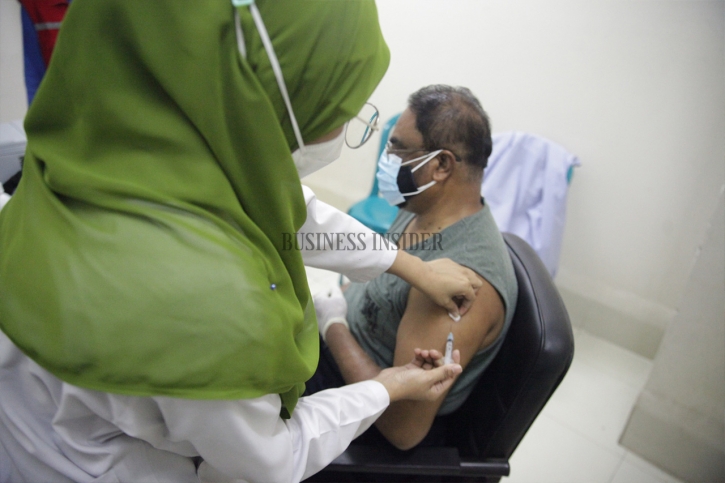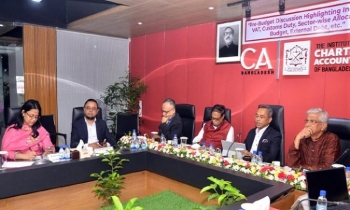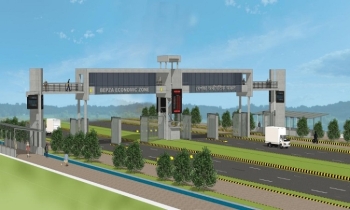Richer nations may recover faster than poorer in Asia-Pacific: Report
BI Report || BusinessInsider

The richer countries in the Asia-Pacific area are more likely to recover rapidly from the fallout of the coronavirus pandemic than the poorer countries due to variation of immunity, healthcare system and vaccine rollout
The richer countries in the Asia-Pacific area are more likely to recover rapidly from the fallout of the coronavirus pandemic than the poorer countries due to variation of immunity, healthcare system and vaccine rollout, according to a report.
“Differences in infections and immunity, financial positions, quality and coverage of healthcare systems and Covid-19 vaccine rollout are likely to lead to an uneven recovery across countries, with the region’s more affluent countries likely to recover more quickly than poorer countries,” said the report.
The report ‘Responding to the Covid-19 Pandemic: Leaving no Country Behind’ was jointly published by the ADB, UNDP and the UNESCAP at a time when the Asia-Pacific region continues to battle with the severe, adverse social and economic consequences of Covid-19 pandemic.
Referring to the much-talked-about K-shaped restoration, which implies some teams or international locations recover a lot faster than others, the report said most international locations will take years to achieve pre-pandemic earnings ranges.
“A K-shaped global economic recovery…appears plausible. Most countries will take years to attain pre-pandemic income levels,” said the report.
Reflecting again on the financial restoration course of after the 1997-98 monetary disaster, the report stated the consequences of the Covid-19 pandemic are more likely to be “worse”.
“There is a fear of multispeed access to vaccines. Developed countries, together with Singapore, the Republic of Korea, China, India, Russian Federation and Turkey, may achieve herd immunity within 2021; while for other developing Asia-Pacific countries, inoculations are likely to have a significant impact on immunity only in 2022,” said the report.
Whereas earnings equality fell in many of the areas globally throughout 1995-2015, it rose over five share factors in Asia and Pacific.
“In some 40 percent of countries in the region, income inequality increased. Worryingly, the market income Gini coefficient soared in China, Indonesia, Bangladesh and India, which are among the five most populous countries in the region and account for over 70 percent of its population,” the report stated.
Gaps in financial functionality may result in substantial cross-country divergence in adapting transformative change led to by teleworking, digitalisation and automation, in the post-pandemic financial system.
“The pandemic may drive greater inequality and social instability, especially in some of the poorest and most fragile parts of the region. A K-shaped recovery and a widening chasm between developing and developed countries remains a major risk,” it added.
However, the report underlined the immense promise digitisation holds in unlocking new paths to sustainable growth.
Digitisation must be complemented with mandatory transformations of economics, public establishments and behavioural norms.
Even as digital instruments have been employed to watch, coordinate and handle the general public well being disaster amid the pandemic, the report stated, “Digitisation is not a panacea.”
If used correctly, the report stated, digitisation will probably be important in making international locations extra resilient to counter financial, social and environmental penalties of the pandemic.
It urged that improvements in digital applied sciences can deal with the pre-existing vulnerabilities, particularly filling the gaps in well being and social safety programs and selling good governance. It can even counteract the impacts of Ok-shaped restoration, rising divergence between and inside international locations and a rise in poverty and polarisation, the report added.
Explosion of e-commerce platforms and digital funds options throughout the pandemic has enabled many companies not solely to outlive but additionally pivot their operations to on-line platforms to thrive.
Further, the report added that the Asia-Pacific area is already off-track to assembly its sustainable growth targets (SDGs), the pandemic has been an enormous setback to reaching the SDGs by 2030.
It has precipitated social and financial devastation throughout the area, destroyed tens of hundreds of thousands of jobs and livelihoods and can reverse a lot of the area’s progress in decreasing poverty and ending starvation, in addition to affecting the well being and training prospects, it stated.
The Covid-19 pandemic has highlighted why women in poor countries use informal e-commerce and digital payments: they are adaptable and resilient in the face of shocks and hold the promise of reducing inequalities.
A research on Bangladesh shows that women’s increasing use of informal e-commerce enhances their livelihoods and increases their use of digital and financial services, such as mobile wallets and online banking.
This adaptability has also been on display in Bangladesh where e-commerce is especially popular among women in a market which has grown eightfold to $200 million since 2013 and is expanding especially fast in rural areas, according to the report.
The report urged the international locations in the area to design insurance policies that make sure that nobody, and no nation, is left behind.






































